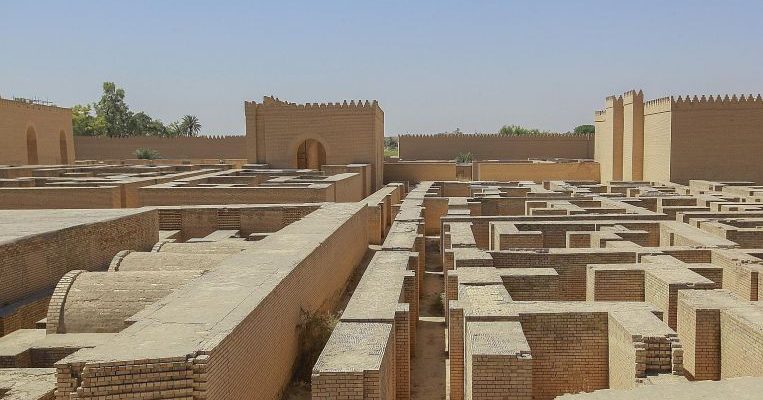
BAGHDAD • Unesco’s World Heritage Committee has voted to list the sprawling Mesopotamian metropolis of Babylon as a World Heritage Site after three decades of lobbying efforts by Iraq.
Iraq has been trying since 1983 to secure Unesco status for the site – a huge 10 sq km complex of which just 18 per cent has been excavated.
Straddling the Euphrates River about 100km south of Baghdad, the city was the centre of the ancient Babylonian empire more than 4,000 years ago.
“What is the world heritage list without Babylon? How to tell the history of humanity without the earliest of old chapters, Babylon?” said Iraq’s representative to Unesco’s World Heritage Committee ahead of the vote.
The committee met in Azerbaijan’s capital of Baku to consider Babylon and 34 other sites, including in Brazil and Burkina Faso, for the list. The 43rd session of the World Heritage Committee continues until Wednesday.
“It fills a gap that was evident on the list and indeed, this is a type of site that we can say this convention was actually designed to protect,” said Tunisia’s delegate.
After Friday’s successful vote, Iraq’s delegation clasped hands and invited all delegates “to visit Babylon, the cradle of civilisation”.
Babylon developed as a walled city of mudbrick temples and towers, known internationally for its Hanging Gardens, the Tower of Babel and the Ishtar Gate.
Excavation began there in the early 1800s and artefacts were sent abroad, including parts of the Ishtar Gate which remain in museums across Europe.
-
Some other new World Heritage sites
-
• Austral lands and seas, France
• Vatnajokull National Park, Iceland
• Colonial port town of Paraty and Ilha Grande, Brazil
• Ancient ferrous metallurgy sites of Burkina Faso
• Natural and cultural heritage of the Ohrid region, Albania (an extension of North Macedonia’s natural and cultural heritage of the Ohrid region, which has been inscribed since 1979)
• Migratory bird sanctuaries along the coast of Yellow Sea-Bohai Gulf (Phase I), China
• Hyrcanian forests, Iran
The site was substantially affected by new structures built under dictator Saddam Hussein and further damaged by soldiers during the US-led invasion that toppled him in 2003.
Unesco said the site’s “extremely vulnerable condition” sparked “serious concerns, with many structures in urgent need of conservation and several on the verge of collapse”.
But it opted not to designate Babylon as a World Heritage Site in Danger after objections from Iraq, and instead said it would work with the local authorities to set a plan of action for conservation.
“Babylon was the largest populated city in ancient history,” said Dr Qahtan al-Abeed, who heads the Basra Antiquities Department and led efforts to get the site listed.
“The Babylonians were the civilisation of writing, administration and science,” he said.
The Unesco designation “will encourage research and development of the site”, and would “be free publicity for tourists”, he added.
Babylon is one of 7,000 archaeological sites in Iraq, many of them destroyed by the Islamic State in Iraq and Syria (ISIS) or ravaged by lucrative artefact smuggling. After decades of back-to-back conflict, the country declared victory against ISIS in 2017 and is now basking in a period of relative calm.
Other sites added to the World Heritage List on Friday include the Vatnajokull National Park, a volcanic region in Iceland, and Paraty, one of Brazil’s “best-preserved coastal towns”, along with parts of the Brazilian Atlantic Forest. Also new to the list are the French austral lands and seas, the largest of “rare emerged land masses” in the southern Indian Ocean.
AGENCE FRANCE-PRESSE, DPA
